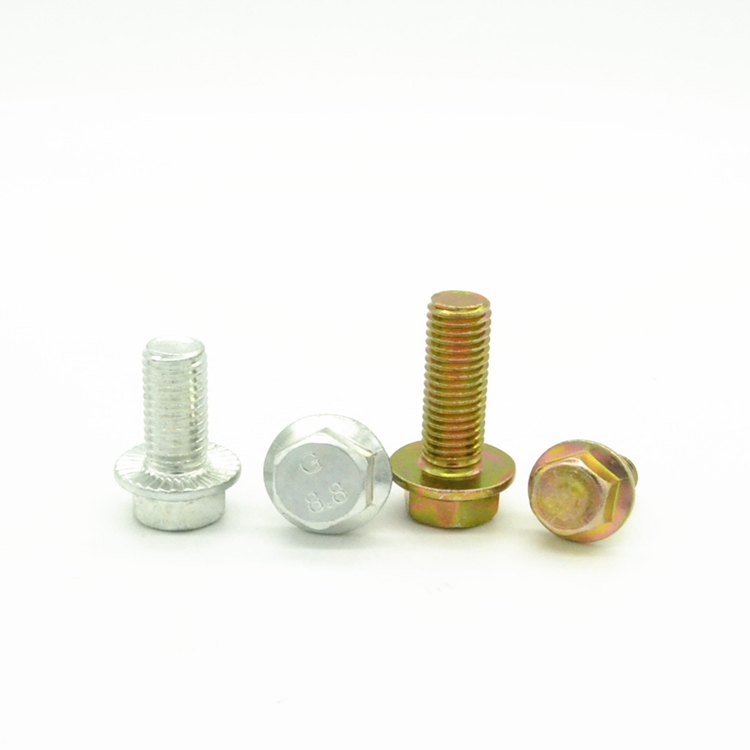din961 hex bolts manufacturer
dets. . 28, 2024 10:52 Back to list
din961 hex bolts manufacturer
DIN 961 Hex Bolts A Comprehensive Guide to Quality Manufacturing
In the realm of fasteners, DIN 961 hex bolts play a pivotal role in a variety of applications, ranging from construction to automotive industries. These bolts are characterized by their hexagonal heads, designed to accommodate a wrench for easy installation and removal. The DIN (Deutsches Institut für Normung) standard ensures that these bolts meet specific criteria for dimensions, strength, and material properties, providing a consistent and reliable product for manufacturers and engineers alike.
Understanding DIN 961 Specifications
DIN 961 outlines the standardized dimensions and mechanical properties of hex bolts. Typically made from carbon steel, stainless steel, or other alloys, these bolts are available in various grades, which denote their tensile strength and yield strength. Common grades include 8.8, 10.9, and 12.9, each suitable for different applications depending on the structural requirements.
The dimensions of DIN 961 hex bolts include various diameters and lengths, making them versatile for multiple uses. The hexagonal head allows for a greater surface area to grip with a wrench, providing higher torque settings without slipping. This feature is crucial in ensuring secure fastening in critical applications where failure can lead to dangerous repercussions.
The Manufacturing Process
The production of DIN 961 hex bolts involves several key steps, each crucial to ensuring the final product meets the stringent standards set forth by the DIN specification.
1. Material Selection The first step is selecting the right raw materials. High-quality steel or alloys are chosen based on the required strength. For instance, carbon steel is common for general applications, while stainless steel offers enhanced corrosion resistance.
2. Cold Forging Most hex bolts are produced using the cold forging process. This method involves shaping the metal at room temperature, allowing for increased density and strength. The cold forging process also enhances surface finish and geometric precision, which are vital for ensuring proper fit and alignment when assembled.
din961 hex bolts manufacturer

3. Heat Treatment After forging, the bolts undergo heat treatment to further enhance their mechanical properties. This process involves heating the bolts to high temperatures and then rapidly cooling them, a technique that increases hardness and tensile strength.
4. Surface Finishing The surface finish of the bolts is critical for both aesthetic and functional purposes. Processes such as galvanization or applying a zinc coating help prevent rust and corrosion, which is particularly important in outdoor and marine applications.
5. Quality Control A robust quality control system is essential in the manufacturing process. Each batch of DIN 961 hex bolts undergoes rigorous testing, including tensile testing, hardness testing, and dimensional checks, to ensure compliance with DIN standards.
Applications of DIN 961 Hex Bolts
DIN 961 hex bolts are used extensively across various sectors. In construction, they secure steel structures, bridges, and frames, where their strength is paramount. In the automotive industry, these bolts are critical in securing engine components and chassis parts. Additionally, they are widely used in machinery and equipment manufacturing, ensuring that components are fastened securely to withstand operational stresses.
Conclusion
Choosing the right manufacturer for DIN 961 hex bolts is crucial for ensuring quality and reliability. A reputable manufacturer employs advanced technology and strict quality control measures in their production processes, resulting in high-strength, durable bolts that meet industry standards. When selecting DIN 961 hex bolts, engineers and procurement specialists should consider the manufacturer’s experience, certifications, and adherence to international standards to ensure they receive a product that is not only effective but also safe and reliable for their specific applications.
In summary, DIN 961 hex bolts are more than just fasteners; they are a fundamental element of safety and reliability in engineering. Understanding their specifications, manufacturing processes, and applications can help stakeholders make informed decisions that enhance the integrity of their projects.
Latest news
-
High-Quality Bolts for Lawn Mower Handle Supplier & Manufacturer
NewsAug.21,2025
-
Reliable Axle Nuts Supplier | High-Quality Automotive Parts
NewsAug.19,2025
-
Premium Wire Bolts Suppliers | Durable & Reliable Fasteners
NewsAug.18,2025
-
Leading Metric Wood Screw Companies & Manufacturers
NewsAug.17,2025
-
Top Wire Bolts Suppliers - Quality & Durable Fasteners
NewsAug.15,2025
-
Trusted Wire Bolts Company | Quality Fasteners Supplier
NewsAug.14,2025
